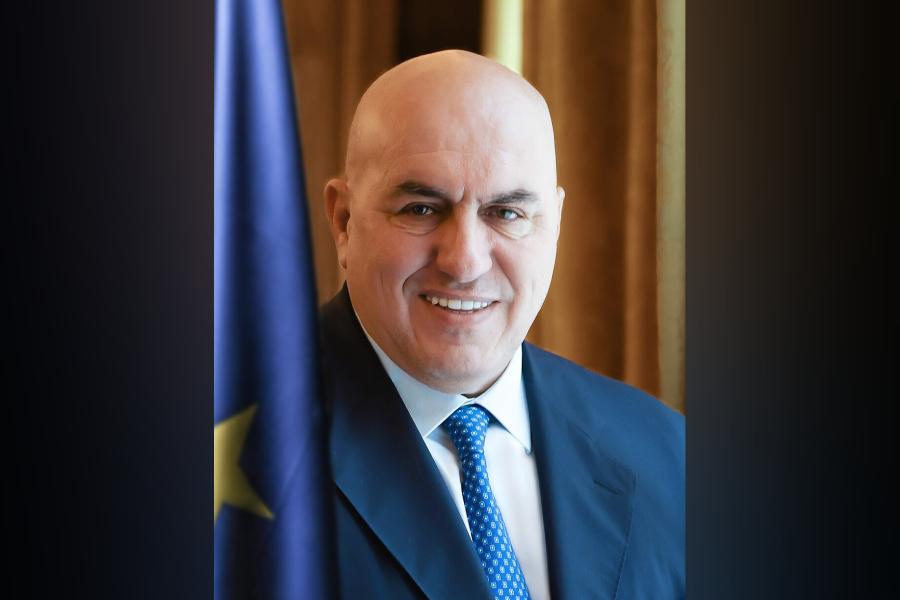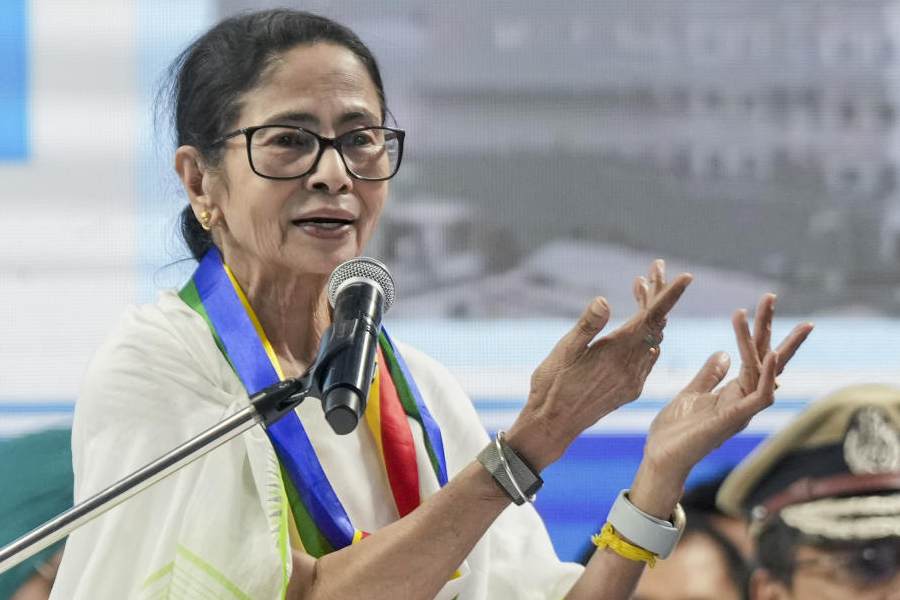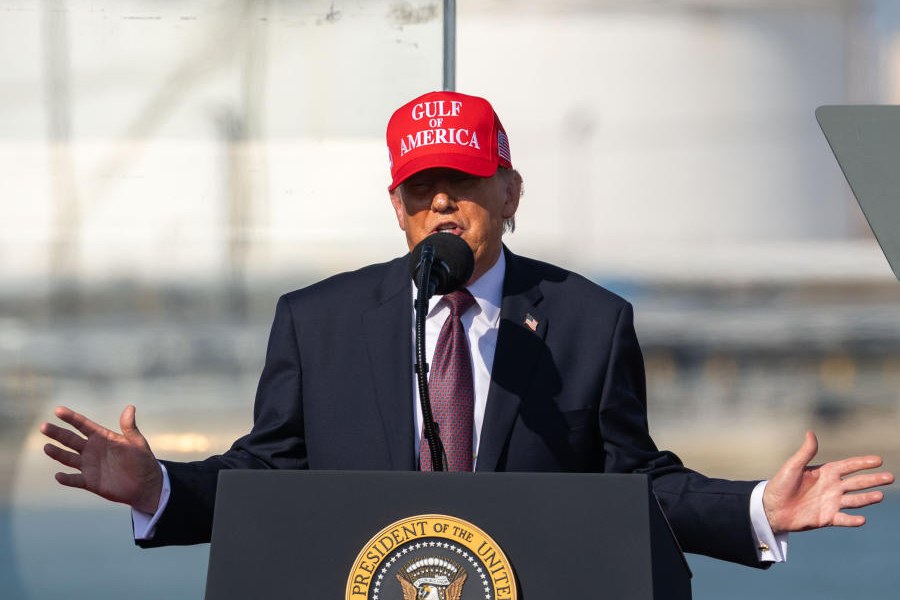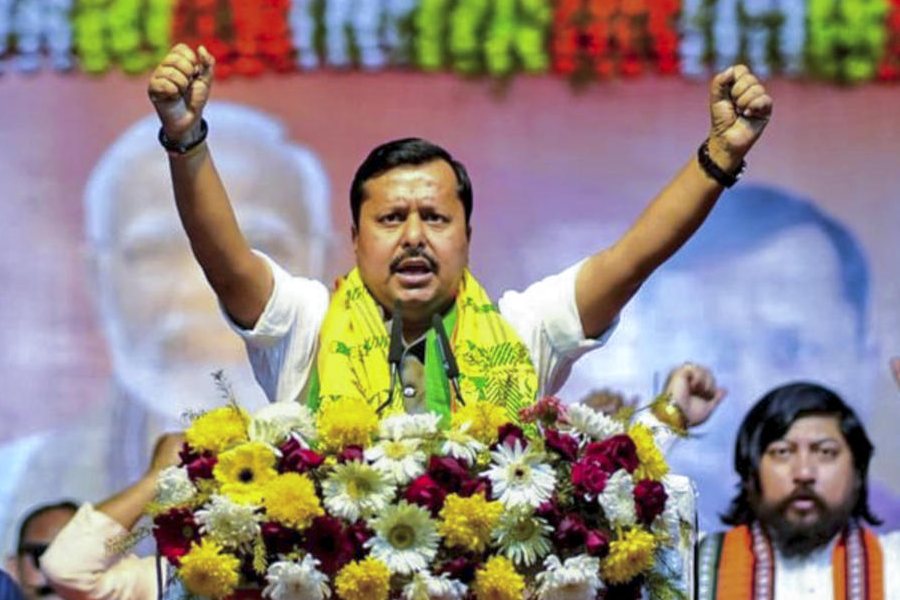 |
 |
| Howard Davies (top), Ramachandra Guha |
London, March 4: The British government, which has been seeking the departure of Muammar Gaddafi as leader of Libya, has achieved one high-level casualty but, alas, a British one.
Howard Davies announced his resignation last night as director of the London School of Economics after eight years in the job because the institution had made the mistake of accepting money from the Libyans during his watch — “the short point is that I am responsible for the school’s reputation, and that has suffered”.
He will stay on until his successor is appointed but will this be Ramachandra Guha?
Guha is probably too involved in his life in India (and writing for The Telegraph) to be seriously interested in the job. However, in all the excitement about Libyan money, Guha’s appointment announced yesterday by the LSE as a visiting professor for a year from September 2011 onwards got overlooked.
His salary has not been disclosed but is likely to be generous. For that, he will give lectures, hold seminars and meet students.
Should Guha want to put himself forward as a candidate for LSE director — an Indian, the late I.G. Patel, has held the job before — he would be a worthy candidate.
“A magisterial chronicle of India, a pioneering study of ecological movements and an award-winning social history of cricket are among the works of a scholar and writer who will take up the Philippe Roman Chair at LSE in 2011-12,” the LSE announced yesterday.
“Ramachandra Guha, a historian and biographer based in Bangalore, will succeed Professor Niall Ferguson as holder of the chair in history and international affairs,” the announcement added.
A source told The Telegraph: “Of course, he will have to live in London for a year.”
The LSE, which is opposite India House in the Aldwych, is well situated. The India Club, a five-minute walk across the Strand, has a restaurant where the dosa and the bhuna lamb are not to be sneered at, especially when served with coconut chutney.
Guha will arrive to find an institution that is in a state of some turmoil. But the LSE cannot be blamed too much for taking Libyan money. Faced with deep government cuts, all academic institutions are “having to sell their soul”, as one commentator put it.
The LSE council has appointed the former Lord Chief Justice of England and Wales to examine the Libyan connection and specifically the £1.5-million donation pledged by Gaddafi’s son, Seif, who got his PhD on good governance, of all subjects, from the institution.
Meghnad Desai, who examined Seif with one other examiner, told The Telegraph that the candidate was asked to revise his thesis when it was first submitted. Later, Seif convinced Desai with his confident answers that he deserved his PhD which was duly awarded to him.
There were rumours at the time that Seif’s work was not all his own. But the plagiarism issue was revived a few days ago because Gaddafi’s son is now seen as playing a leading role in brutally putting down the rebellion against his father.
Seif has given only £300,000 of the £1.5 million he promised the LSE. The rest of the money will be sent back even if he were to send a cheque, which seems unlikely in any case.
Desai appears to be in the clear because Davies said in his resignation letter to Peter Sutherland, the chairperson of the LSE’s Court of Governors: “To the best of my current knowledge (though we are currently reviewing the evidence), the degrees to Seif Gaddafi were correctly awarded, and there was no link between the grant and the degrees.”
The difficulty for Davies, a former head of the Financial Services Authority and deputy governor of the Bank of England, is the inquiry will look into the fee of $50,000 paid by Libya to LSE in 2007 for the director’s financial advice.
“I advised the council that it was reasonable to accept the money and that has turned out to be a mistake,” Davies said in his resignation letter. “There were risks involved in taking funding from sources associated with Libya and they should have been weighed more heavily in the balance.”
“Also, I made a personal error of judgement in accepting the British government’s invitation to be an economic envoy and the consequent Libyan invitation to advise their sovereign wealth fund,” Davies added. “There was nothing substantive to be ashamed of in that work and I disclosed it fully, but the consequence has been to make it more difficult for me to defend the institution.”
Davies said: “However laudable our intentions, in the light of developments in Libya the consequences have been highly unfortunate, and I must take responsibility for that.”
While Davies prepared to leave, Guha was putting his academic pads on. “I am honoured and delighted at the opportunity to be part of LSE IDEAS,” said Guha. “My intellectual evolution was profoundly shaped by several generations of scholars associated with the LSE and this debt will surely be increased further by the year spent among the brilliant minds in and around Houghton Street.”
Professor Arne Westad, co-director of IDEAS, its “centre for international affairs, diplomacy and strategy”, called Guha “a top intellectual” and “the thinker best placed to extend the range of work done at IDEAS to the South Asian region.”
Professor Michael Cox, co-director of IDEAS, added: “The sheer breadth of Ramachandra’s work, as well as its insight and depth, mark him out as one of the leading thinkers in our sphere. We look forward to bringing him to Houghton Street and learning more about democracy, the environment, India and perhaps even cricket.”











